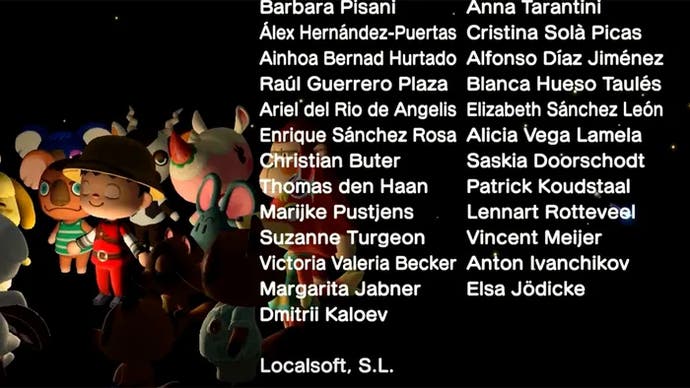External translators hired for Nintendo projects bemoan lack of credit in "almost every big title"
"I felt robbed."
Translators contracted from firms outside of Nintendo have complained about not being credited for their work on high-profile games from the Mario maker, including The Legend of Zelda: Tears of the Kingdom, Animal Crossing: New Horizons and Super Mario RPG.
Speaking with Game Developer, anonymous sources who worked for external translator agencies on Nintendo's projects said they had been left off credits. In addition, sources said they had been asked to sign a non-disclosure agreement which prevented them from talking about their work for 10 years.
"I kind of accepted [miscrediting] as 'part of the business' but that doesn't mean it's fair or right," one source who worked on Nintendo projects through service providers Localsoft and Keywords told the publication. "The fact that these companies are not able to give any reasonable explanation for omitting external translators (and even developers) from their credits is proof of this, I think.
"Professionally, it's hard to tell how much this has impacted me. It's entirely possible that more translation agencies would have approached me if my name was out there in all these big blockbuster Nintendo games, but who knows?"
One source blamed Nintendo's own rules on crediting for this. "It is Nintendo's policy to not list the name of translators from external agencies in their game credits, which also forbids us from listing those titles on our CVs," they said.
"For games like Animal Crossing or Breath of the Wild you don't really notice that 15 or 20 translators are not in the credits, as there are all the other names from their in-house translators, which is why Nintendo's policy of miscrediting might have flown under the radar," one source added.
"But almost every big title that Nintendo releases which uses external translators actually fails to credit translators."

One translator called this snub "upsetting", but sadly not surprising. "That's generally how things work when working through translation agencies, so as much as we were upset (at least some of us), in the end, we shrugged it off as just another day in translation," they said.
It's unclear to what extent in each case the decision not to credit is entirely influenced by Nintendo's own policies, or the policies of the external translation agencies. Eurogamer previously investigated the issue of why localisation workers are regularly left out of game credits and found that the blame was often shared between agencies and the companies they worked with.
"The agencies and the clients just play the blame game endlessly," a source told Game Developer. "It is my opinion that the clients don't care, and the agencies have everything to gain from keeping their vendors, us the translators, in the dark. When it comes to money, fees, contracts and anything related, everything shifts to dark mode."
Another source added there was a "closed circuit between game companies and translation agencies" which was "as opaque as it can be so that the agencies can make as much profit as they can".
"If the game company makes a bad call, the agency will roll with it 100 percent. If the game company screws the translators over, the agency will nod their heads and feed on what's left," they said. "And if the agencies can get you to work more for less, even though the company didn't ask for it, they will."
However, despite this unfairness, Game Developer's sources said there was a risk of getting "blacklisted" if they raised concerns. "This is a field where taking an annual break can shut you out of months of work. No one cares what we think because there's literally nothing we can do about it, and that's even if we were willing to forfeit our livelihood for the greater good," they said.
Eurogamer has reached out to Nintendo, Localsoft and Keywords for comment on today's report.

This is not the first time video games have left team members uncredited in a final product. In January last year, a former Sega localisation specialist criticised the lack of credit for language translators in Persona 3 Portable and Persona 4 Golden.
That same month, multiple former Striking Distance employees revealed they had not been credited for their work on The Callisto Protocol, a decision described as "egregious" by one developer.

